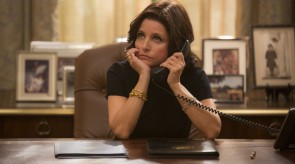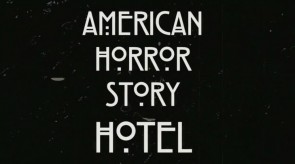Dollhouse, Joss Whedon and why TV is doomed…
 Jim Morrison. Heath Ledger. TV series by Joss Whedon: What are “Things that were snuffed out before their time”? Correct.
Jim Morrison. Heath Ledger. TV series by Joss Whedon: What are “Things that were snuffed out before their time”? Correct.
Apparently in the age of Big Brother, The Apprentice and The X Factor there is no place in this world for intelligent and well crafted programming and no man knows this better than Whedon; his latest casualty being Dollhouse.
For some time now it has been clear that smart, sexy sci-fi does not sit well with network executives. With reality shows being a license to print money, properly funded and well-written television often falls by the wayside. But what was it in particular that brought about the fall of Dollhouse?

Several factors contributed to the show’s demise; the first being the timeslot. The “Friday Night Death Slot”, as it has been dubbed, is where TV shows are sent to die. So it says so much about Fox’s opinion of the Mutant Enemy penned series that it started off in the graveyard slot. It says even more that despite the show proving strong in the DVR ratings that, rather than try to relocate it (as Sci-Fi did with an ailing Battlestar Galactica), the network’s knee-jerk reaction was to cancel the season midway through its second season.
 The second reason for the untimely demise seems to have been the complex subject matter. On the surface Dollhouse is a sci-fi series about superhuman, programmable people, with all of the prerequisites thereof: fighting, explosions, slick technology. Although, it’s not quite that simple. The real concepts with which Dollhouse deals are relationships, the morality of power and the notion of the soul. One of the core threads of the series is the idea that while the Dolls’ personalities are continuously erased and reloaded, there is an aspect of their humanity that cannot be erased, a part of them that cannot be removed. Additionally the series frequently makes reference to the idea that the Dollhouse is a kind of brothel, with actives being deployed on romantic engagements as well as action-packed assignments. The consideration of these subjects are extremely ambitious for such a series and may have proved too much for some viewers, who prefer their morals black-and-white and their sci-fi candescent.
The second reason for the untimely demise seems to have been the complex subject matter. On the surface Dollhouse is a sci-fi series about superhuman, programmable people, with all of the prerequisites thereof: fighting, explosions, slick technology. Although, it’s not quite that simple. The real concepts with which Dollhouse deals are relationships, the morality of power and the notion of the soul. One of the core threads of the series is the idea that while the Dolls’ personalities are continuously erased and reloaded, there is an aspect of their humanity that cannot be erased, a part of them that cannot be removed. Additionally the series frequently makes reference to the idea that the Dollhouse is a kind of brothel, with actives being deployed on romantic engagements as well as action-packed assignments. The consideration of these subjects are extremely ambitious for such a series and may have proved too much for some viewers, who prefer their morals black-and-white and their sci-fi candescent.

The show’s Mutant Enemy writing staff – with major new input from Maurissa Tancharoen and Jed Whedon – addressed mature and complex subjects skillfully and subtly. The cast lacked a weak link and every one brought depth and likeability to their characters.
Which brings me to my conclusion: Television is doomed. If smart, well produced programming is to be written off at the first sign of trouble then it can’t be long before Simon Cowell is master of the universe and people have to perform on talent shows for the right to survive. If you think it would make a good post-apocalyptic-Logan’s-Run-esque sci-fi series, don’t bother. Fox would only cancel it anyway.


